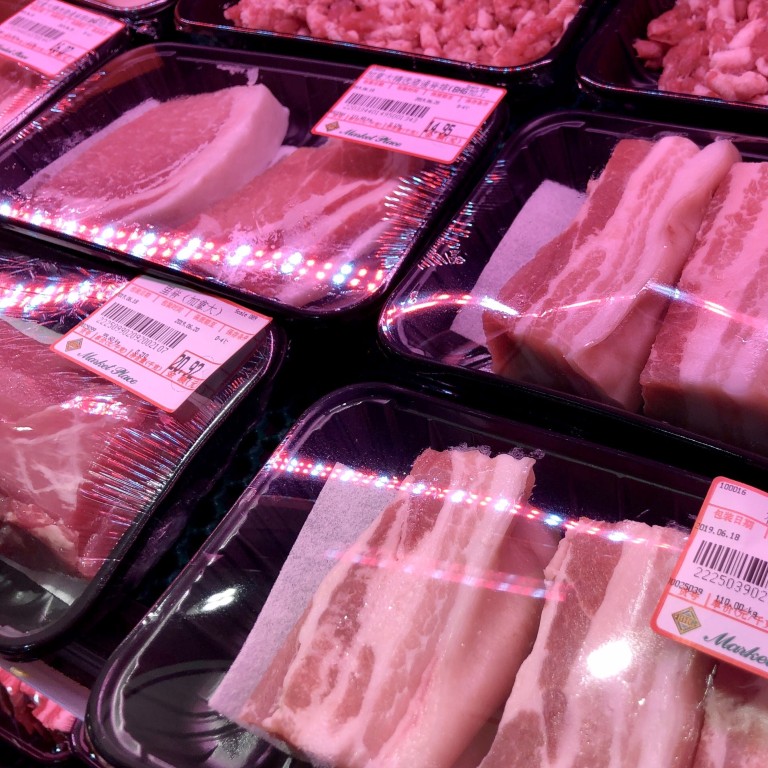
China halts all meat imports from Canada over ‘forged pork certificates’
- Canada agrees to suspend permits for meat exports to China after recent Chinese bans on pork from several Canadian firms
- The two countries have been at loggerheads over variety of issues since arrest of Huawei executive in December
China is suspending all meat imports from Canada, in the latest blow to relations between the countries since the arrest of Huawei executive Sabrina Meng Wanzhou in Vancouver in December.
A statement from the Chinese embassy in Canada said China had asked Canada to suspend meat exports on Tuesday, citing a quarantine problem.
Two months earlier, China had halted pork imports from two other Canadian producers, Olymel and Drummond Export, because of labelling problems.
“The Chinese customs department has recently detected ractopamine when examining a batch of pork products from Canada,” the Chinese embassy said in a statement on Wednesday.
“The investigation found that the official veterinary health certificate attached to the pork was forged. A total of 188 forged certificates were found.
“To protect the safety of Chinese consumers, China has taken urgent preventive measures and requested the Canadian government to suspend the issuance of meat certificates for export to China on June 25.”
China had previously warned Canada that it would open all containers of Canadian meat and, in some cases, inspect 100 per cent of the contents.
The Canadian Food Inspection Agency (CFIA) has accepted the Chinese request and ceased issuing the certificates for all beef and pork products.
China was Canada’s third largest pork export market last year, worth about C$500 million (about US$380 million), according to Canada Pork International.
Relations between the two countries have soured since Canada arrested Meng, chief financial officer of Chinese telecoms company Huawei, at the request of the United States.
Canadian citizens Michael Kovrig, a former diplomat, and Michael Spavor, a businessman, were detained in China in December and later charged with spying – a move widely seen as retaliation by China for Meng’s arrest. Canada has criticised China for not allowing Kovrig and Spavor access to their families or lawyers.
Justine Lesage, a spokeswoman for Canada’s agriculture minister, said in a statement that the CFIA had identified an issue involving inauthentic export certificates that could affect the export of pork and beef products to China.
She said the agency had “taken measures to address this issue and is continuing to work closely with industry partners and Chinese officials”.
“The Canadian food system is one of the best in the world and we are confident in the safety of Canadian products and Canadian exports,” she said.
Additional reporting by Associated Press

